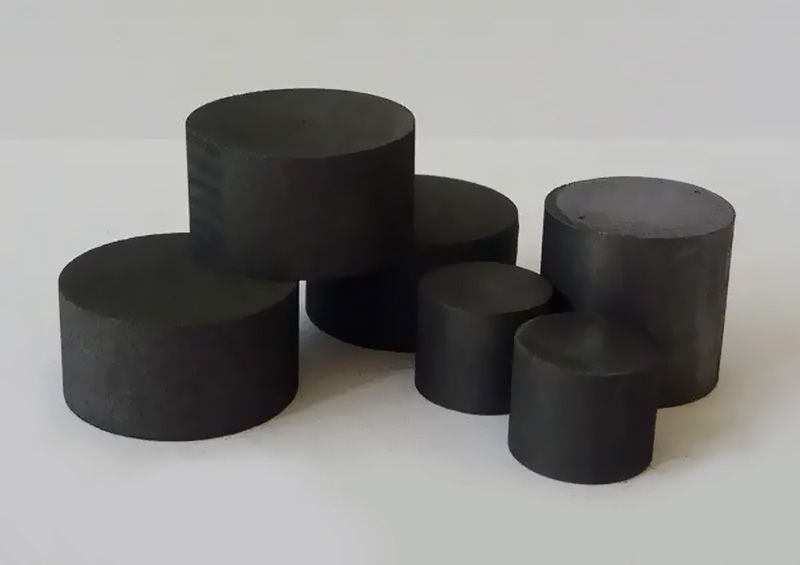
 2022-11-19
2022-11-19
 2023-07-04
2023-07-04With the continuous progress of science and technology, battery materials have received widespread attention and research in recent years. Battery material is a core component of the battery and has a vital impact on the performance and life of the battery. With the pursuit of green environmental protection and new energy, the future development trend of battery materials has also attracted much attention. This article will explore the future development trend of battery materials from the following four aspects.1. Research on new battery materialsAt present, lithium -ion batteries are the most common battery types in the market, but they have problems such as energy density, safety and cost. Therefore, the research of new battery materials has become a popular research field. For example, solid battery materials, high -performance capacitance materials, metal air battery materials, etc. are all current research directions. These new battery materials are expected to solve the problem
 2023-07-05
2023-07-05With the improvement of global environmental awareness, electric vehicles have become more and more concerned and favored by people. And one of the most important components of electric vehicles -the battery has therefore become a popular product in the market. However, the popularity of electric vehicles will lead to a significant increase in the demand for battery materials. How big is this market, and which materials will it be the mainstream?First of all, the demand for battery materials is obvious. According to the data of the consulting company Roskill, the size of the global battery raw material market in 2018 is about $ 25 billion, and it is expected to reach $ 70 billion by 2025. This growth will mainly come from the demand growth in the fields of electric vehicles, energy storage systems and renewable energy.Secondly, what are the main components of electric vehicle battery materials? Lithium, nickel, cobalt, manganese, aluminum and other metals will be used to varying degre
 2023-07-03
2023-07-03Battery materials have always been the field of attention in the new energy industry. Among them, graphite, as a type of battery material, has been widely used for its good conductivity, high temperature stability and corrosion resistance. This article will introduce the production and application of battery -specific graphite to explore its advantages and future development prospects in the battery field.First of all, the application of graphite as a battery material is mainly reflected in lithium ion batteries. At present, lithium -ion batteries have become an important driving force in electric vehicles, mobile phones and other fields. Among them, graphite, as a lithium -ion battery negative electrode material, has the characteristics of high energy density and long life, and has been widely used. Its production process mainly includes steps such as carbonization, drying, ball milling, and screening. Among them, the selection of raw materials and the optimization of production tech
 2023-07-03
2023-07-03Condent graphite is a material with high electrical conductivity. Because of its excellent conductive performance and high mechanical strength, it is widely used in many fields. In this article, we will explore the application areas and future development trends of conductive graphite.1. Battery fieldConductive graphite has excellent conductivity and mechanical strength, and is one of the indispensable materials in battery manufacturing. Condent graphite can be used to produce negative electrode materials for lithium -ion batteries, which can increase the cycle life and energy density of the battery while reducing the self -discharge rate of the battery.2. Electronic fieldCondent graphite can be used as conductive materials for electronic products, such as display, touch screen and printing circuit board. The conductive performance of conductive graphite can make the electronic equipment more sensitive and responding faster, and at the same time, it can also improve the mechanical str
 2023-07-03
2023-07-03In today's science and technology era, research and development in the field of battery materials are in the stage of high -speed development. As people's demand continues to increase, the needs of more efficient, environmentally friendly and safe battery materials are becoming increasingly urgent. As an important new material, graphene is receiving more and more attention and research. This article will explore the application prospects of graphene in the field of battery materials.Graphene is a single -layer honeycomb structure composed of carbon atoms, with excellent physical and chemical properties. Its conductivity, thermal conductivity, and mechanical strength all have very outstanding performance. These excellent properties provide extensive possibilities for the application of graphene in the field of battery materials.First, graphene can be used as an electrode material for the battery. Compared with traditional electrode materials, graphene has a higher surface area and bett
 2023-06-27
2023-06-27The special graphite for batteries has good chemical stability, and the specially treated graphite has the characteristics of corrosion resistance, good thermal conductivity, and low permeability, so it is widely used to make heat exchangers, reaction tanks, condensers, combustion towers, absorption towers, coolers, heaters, filters, and pumps, and is widely used in petrochemical, hydrometallurgy, acid-base production, Synthetic fiber, paper making and other industrial sectors, Can save a large amount of metal materials.It is a material for casting, casting, pressing and high-temperature metallurgy. Because of its low coefficient of thermal expansion of graphite and its resistance to rapid cooling and heating, it can be used as a mold for glassware. After graphite is used, Ferrous can be used to obtain castings with accurate size, smooth surface and high yield, which can be used without machining or slightly processing, saving a lot of metal. In the powder metallurgy process of produc